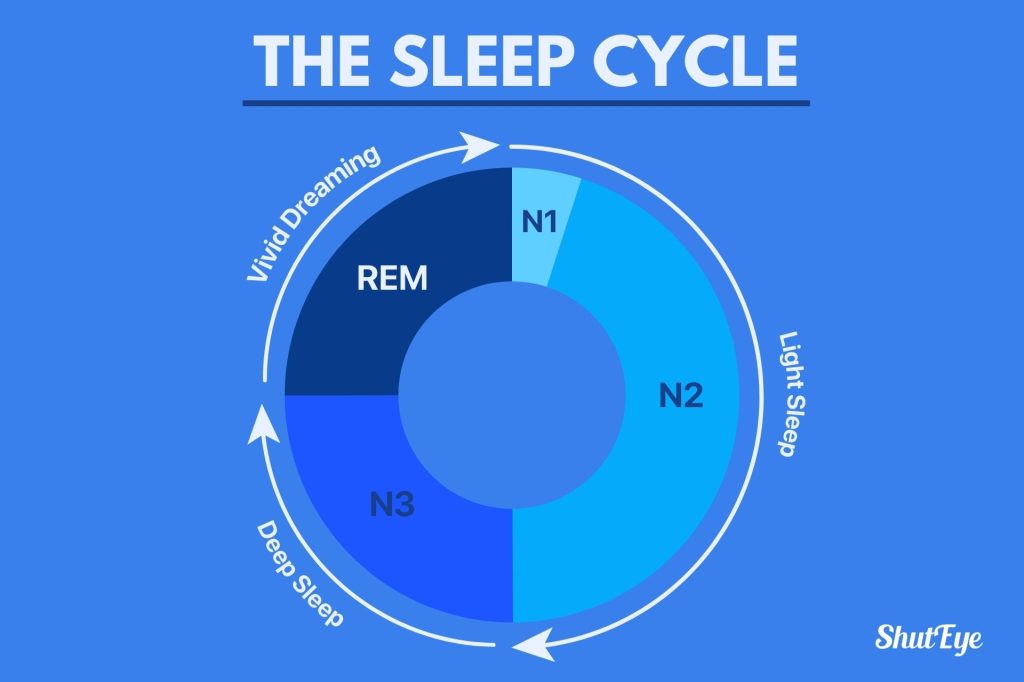


Have you ever wondered how long a dream lasts?
It’s a question that piques the curiosity of nearly all of us, as dreaming is a universal human experience, whether we remember our dreams or not. While the full significance of dreams remains elusive, it’s still intriguing to uncover the duration of these nightly journeys.
The brain is active all night long with intense brain activity during REM sleep, which is the period we usually dream. According to the research, adults and babies dream for around two hours per night, which typically lasts for five to 20 minutes.
More than 90% of dreams are forgotten, due to the inactive function of memory formation during REM sleep. It is funny to find that dreams can differ from gender, that men’s dreams are about physical activity while women are more about exclusion and conversation.
However, numerous factors that can impact the emotional content of dreams, such as anxiety, stress, and external stimuli, can influence positive and negative dreams.

See also: Why do we dream?
The average person dreams for about 2 hours (120 minutes) per night, although this can vary widely from person to person. Most dreams occur during rapid eye movement or REM sleep. Usually, your body will enter REM sleep 90 minutes after you fall asleep, and when you cycle back from NREM sleep into REM again, you might remain in REM sleep for a longer time.
However, it is impossible to determine how many dreams you have during a night. Usually, you will remember a few of them when you wake up. Some research indicates there might be a correlation between the time you spend in REM and the time you spend dreaming.
On any given night, your longest dream period is typically 35-40 in the morning, before you wake up. There are certain exceptions that the dream time extends for longer, especially during lucid dreams where physiological variables are ideal for prolonged dreaming.
Therefore, theoretically, the longest dream occurs about 2 hours long, but in practice it is rare, and most dreams last for about 45 minutes at most.
Understanding the relationship between sleep cycles and dream duration is essential for unraveling the mysteries of the human mind during sleep. Sleep is a complex process that consists of distinct stages, and dreams play a significant role in these cycles. Research has shown that dream duration varies throughout the night. The most vivid dreams occur during the Rapid Eye Movement (REM) stage. As we delve deeper into the details of sleep cycles, it becomes evident that the timing of dreams within these cycles can influence their length and intensity.

Exploring the details of dream science, one comes across the contrast of NREM (Non-Rapid Eye Movement) and REM stages in dreaming. These distinct stages serve as the canvas for our dreamscapes, each offering unique experiences. NREM sleep is known for its slow brainwave activity, often leading to more ordinary dream experiences. On the other hand, REM sleep, distinguished by rapid eye movement and heightened brain activity, is the stage where our most vivid and imaginative dreams typically occur. Studying how NREM and REM stages work together when we dream can help us learn more about our dreams. It shows us how our dreams form and affect our feelings and thoughts while we sleep.
A lucid dream is a special kind of dream where you become aware that you are dreaming while you are still in the dream. It’s like being the director of your own movie in your sleep. You can make decisions and even change the dream’s course. But have you ever wondered how to make these lucid dreams last longer?
Several things can affect how long a lucid dream lasts. These factors can determine whether you get just a brief moment of lucidity or a longer, more vivid experience. Understanding these factors can help you make the most of your lucid dreaming adventures.

Remember, everyone’s experience with lucid dreaming is unique, and these factors may interact differently for each individual. Experimenting with various techniques and paying attention to your own dream patterns can help you enjoy longer and more fulfilling lucid dreams.
There’s no definitive evidence about what dreams consist of, but it’s generally accepted that dreams represent a collection of thoughts, struggles, emotions, events, people, places, and symbols that are relevant to the dreamer in some way.
Alligator Dreams
Baby Dreams
Bear Dreams
Cat Dreams
Chase Dreams
Death Dreams
Dog Dreams
Ex Dreams
Falling Dreams
Fire Dreams
Fish Dreams
Flying Dreams
Pregnant Dreams
Rat Dreams
Snake Dreams
Teeth Dreams
Tornado Dreams
Vacation Dreams
Wedding Dreams
Everyone is different when dreaming, whether you remember your dreams or not, you dream at various points at night. Also, it is interesting to know how long does a dream lasts, and it is just your brain at work in a nightly process with certain ongoing goals.
Remembering dreams and improving sleep quality are two interconnected aspects of our nighttime experiences that can impact our well-being. Dreams offer a window into our subconscious minds, revealing thoughts, emotions, and unresolved issues. By actively working to remember our dreams, we can gain valuable insights into our inner world and address any underlying concerns. Additionally, cultivating good sleep hygiene practices such as maintaining a consistent sleep schedule and practicing relaxation techniques can enhance the quality of our sleep. Adequate and restful sleep not only aids in dream recall but also contributes to improved cognitive function, mood stability, and physical health.
Fortunately, there are innovative tools like the ShutEye® application that can assist in optimizing sleep patterns, offering personalized solutions, and helping individuals achieve a more balanced and fulfilling life.

